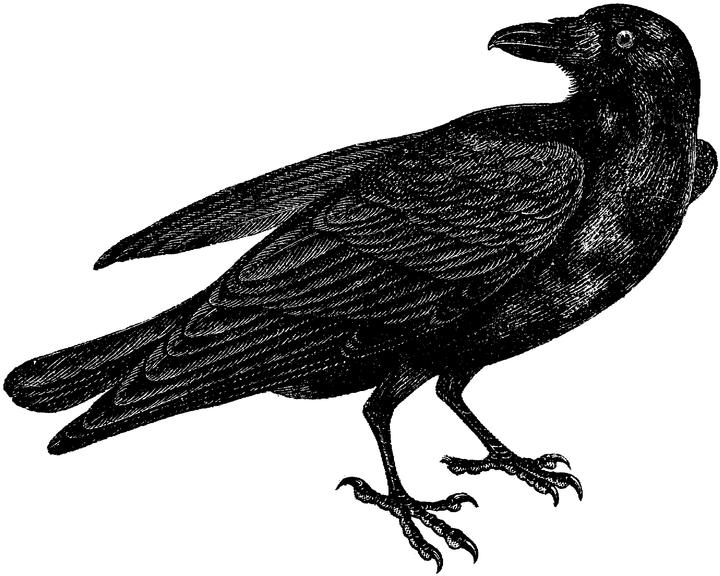Hempel’s Ravens Paradox
The philosopher Carl G. Hempel, in his 1965 essay “Studies in the Logic of Confirmation,” brought to light a central paradox in the scientific method as it is commonly understood.
The problem is with inductive reasoning, and Hempel’s example was as follows: Suppose you see a raven, and you note that it is black. “Hmm,” you say, “that raven was black.” Sometime later you notice a couple more ravens, and they also are black. “What a coincidence,” you remark, “those ravens are black too.” Time goes by and you see many more ravens. And it happens that all the ravens you see are black. “This is beyond coincidence,” you might reasonably think, and with the instincts of a good and observant scientist you form a hypothesis:
All ravens are black.
Black Raven
This is a deliberately simplistic example, but it lays bare what the first step in the scientific method, commonly understood, really amounts to: one makes observations, and forms an inductive hypothesis. The next step, of course, is experimentation to confirm or refute the hypothesis—and it is here that the trouble occurs. In a case like this, experimentation amounts to observing as many ravens as possible, and confirming that they are all black. Now it is impossible, even in principle, to observe every raven, for many no longer exist, many do not yet exist, and it is conceivable that there are creatures one would also wish to call ravens that exist in inaccessible places, such as other planets. There are always limits to an experimental apparatus, even if the apparatus is just a matter of observing as many ravens as possible to check their color. Nonetheless, we feel justified in saying that each new observation of a black raven tends to confirm the hypothesis, and in time, if no green or blue or otherwise non-black ravens are observed, our hypothesis will eventually come to have the status of a natural law.
But is this logical? Note that, logically put, our hypothesis “all ravens are black” has the form of a conditional, that is, a statement of the form “if A then B.” In short, we are saying that if a given object is a raven, then that object is black. According to the laws of logic, a conditional is equivalent to its contrapositive. That is, a statement of the form “if A then B” is equivalent to the statement “if not B then not A.” For example, the statement “if I live in Denver then I live in Colorado” is logically equivalent to the statement “if I do not live in Colorado then I do not live in Denver.” This rule of logic is incontrovertible.
Non-Black Non-Raven
Our hypothesis “all ravens are black” therefore has the equivalent form “all non-black things are non-ravens,” or more precisely, “if an object isn't black then it is not a raven.” Consequently, if every sighting of a black raven confirms our hypothesis, then every sighting of a non-black non-raven equally confirms our hypothesis.
I look at my shirt. It's blue. And it is not a raven. Confirmation! My hypothesis that all ravens are black is strengthened! My coffee cup is red. More confirmation. The grass is green, the sky is blue, my computer is gray, my dog is white—all confirming the hypothesis “all ravens are black.”
Silly, isn't it? (Isn't it?) But by the laws of logic, if I accept inductive hypotheses and confirmation by experiment, then every observation except one that refutes my hypothesis—confirms it. Even if it is totally irrelevant.
Addendum
Very well, you might say, but maybe every sighting of a non-black non-raven really does confirm, even if only to an infinitessimal degree, the hypothesis that all ravens are black. After all, if we could, somehow, check every non-black object in the universe, and if none of them were ravens, our statement that all ravens are black would be proved.
Just so. Maybe my blue shirt does reinforce, even if only to some tiny degree, the hypothesis that all ravens are black. But if so, then it must also reinforce—to the same degree—a completely contradictory statement, namely, the hypothesis that all ravens are white. After all, my shirt is a non-white non-raven….



